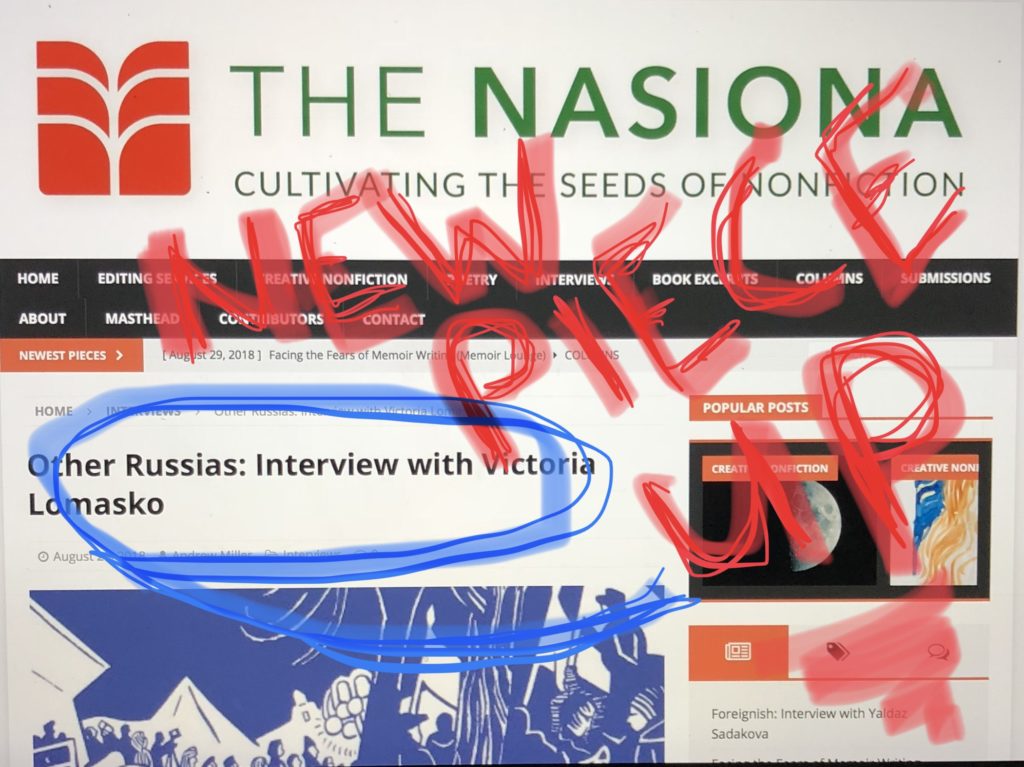This week’s micro essay examines Joanne Kyger’s poem, titled:
Very Important & Natural
Absorbed in People Magazine
Beyond Giddy
Following the examination, I have provided a re-engineered take on this poem of my own creation.
The first thing I notice is the sarcasm within the title, which feels less like a title to me, and more like a preparatory stanza. “Very Important & Natural / Absorbed in People Magazine / Beyond Giddy” – I attempted to find the July and August issues from 2010 of People just to get a feel for what she might have been reading but was unable to find anything beyond the cover (at least without purchasing them). Surely it isn’t imperative that I know this reference, because I can track the humor throughout the poem, but I do remain curious.
An aside, as someone not in the habit of looking at People, it appears there are two cover stories – either someone is being married, or someone is going through a divorce. From time-to-time someone dies or has a baby. Were anyone looking for stories based only upon the most obvious and universal of topics, they are certain to find them in People; but I digress.
Not only does the title of the poem feel like an opening stanza, the three-line structure also reads as if each line could be referencing an individual article. My curiosity about where these lines were pulled is killing me. They are three individual states-of-being; with their own sort of life – which is reflective of what comes in Kyger’s question “What if every emotion has a self”?
In response, I wonder if allowing oneself to be absorbed by an emotion or feeling conjures this “self” into being. As an example, the feeling of being “Very Important” can shut down feelings of empathy if the person allows that feeling to take over, for them to become “Absorbed” in their own importance.
I’m having a difficult time reflecting on what I notice line-by-line without jumping ahead and then reflecting back; I also want to consider the sounds that are made within the piece, and those I will take on next. Tabbing the remainder of the poem to the right, allowing for additional pauses as the narrator works through the question about “every emotion” having its own “self” feels to me as if the question is put forward to the reader, but then the narrator provides their own inner monologue – like what might happen in a conversation (or perhaps an argument – such as where this seems to lead).
Observing the fact that time is fluid, and chained to which emotional selves are in existence feels like a new thought in the poem, but also reflective of the title. Such as the Warhol concept of 15-minutes-of-fame. Or the cliché of time-flies-when-you’re-having-fun, and it drags when you are not; or in Kyger’s terms, “although seconds / can seem like total horrible eternity”.
Following this series of considerations is a quote from Tristan Tzara which pulls from his Dada poem “12th December 1920”[1]. Within Tzara’s poem he seems to linger on concepts about gossip, popularity, and the commercialization of creativity and art is leading to art’s own “annihilation”. This feeling of impending doom follows in Kyger’s poem as well – I think – or maybe I’m missing a larger point. Where “action proceeds from immediate response” is then established by the next few lines, beginning with the argumentative statement about a phone call. Throwing water on a newly lit stove provokes both a visual response of what feels to me like an argument between a couple, wherein the narrator shows her (his?) seriousness by extinguishing everything they were underway with – both the dishes and the cooking.
People magazine is colloquially thought of as a gossip rag, so the Tzara theme seems to call back to that as well. The 30-minute-phone-call suggests that there is another example of fluidity to time, emphasized by the physically fluid “dishpan of water”.
Here I feel we see how the drudgery of daily life intrudes upon the prospect of something new; with gossip being a way to prevent boredom. The lit stove representing something new. The argument over how much time was spent gossiping while doing dishes is like adding insult to injury. The narrator already suffering the chore of the dishes, only wants something to keep their mind busy or an emotional state that doesn’t “seem like a total horrible eternity” – yet this isn’t OK to the mysterious antagonist.
Finally, in the end there is another dose of sarcastic humor, not unlike how the piece began – “Bit of a mess to clean up, but worth it / considering all the wet dust I found.” Not only is there humor, but there is also the call back to considerations; and in Tzara’s poem, there is the desire to maintain mess for the sake of maintaining art – for hygiene is what will ultimately lead to the death of art – and to wrap it all up together, People magazine is about as plain-Jane and hygienic a piece of literature(?) as there might be.
Now then, I promised to consider the sounds associated with how the poem flows, and the energy it passes back in forth in doing so. To that point, I noticed that the use of the sssss and the e/E sounds dominate the first stanza, even intermingling. For example, the use of the E words: every, emotion, existence, and eternity. The S words: self, selves, seconds, and seem. Within each of the S words though there is a secondary E sound – such as in self there remains elf; seem holds eem.
Connecting the sounds of the title through to the end of the poem are these Oooo sounds such as in the words: Absorbed, Beyond, emotion, long, seconds, response, on, and on.
The breaths between, which I mentioned briefly above, are worth consideration as well. The first stanza as an audible question followed by a sort of internalization of the thought. Then, bringing in the reference to Tzara, there is a much quicker response – as would be appropriate of leading with “The thought is made in the mouth” – quickly followed again with “the thought” from “the mouth”, with a breath to consider which action should follow. The result requiring a few breaths, a pause, to consider the aftermath.
I notice that Hoa locked in on Olson’s use of “a stranger, suddenly showing up” to alter what her narrator was doing, the way that Death acted upon the narrator in “Cole’s Island”. Following that lead, here then is my re-engineered poem. I hope I am capturing a piece of the rhythm from Kyger’s poem along with the concept of how thoughts interact with our day. Funny, in a way I feel like this Kyger poem is a re-engineered version of Tzara’s poem; sort of a stripping down of it, an updating of it – but maybe I’ve read too much in.
[1] http://www.391.org/manifestos/1920-dada-manifesto-feeble-love-bitter-love-tristan-tzara.html
* * * * *
A Sense of Completion
Podcasts on 1.5x
My Lunch Breakfast
Rosecrans Baldwin brings me down with the reality that in Paris you do not take lunch at your desk. Had I known I might not have applied for the position at UNESCO.
Why must the lunch hour be an hour when it can be five furious minutes
— American–
By nine A.M. my lunch is eaten to the sound track of Alvin-and-the-Chipmunks reporting on esoteric topics such as the creation of the first “jock-bra”, or debates on prison abolition and gun control from a leftist foundation
Hunger is a secondary concern in my cubicle, as it is in Paris
in Paris even my 4-year-old ate snails, followed by two more courses; then she ate cake
in Paris we sat for hours
Procrastination is not far from Productivity
in preparation, I spend two minutes making a vegan shake, then selecting a Lara bar, so my breakfast will be gone before I get to work, and my lunch shortly thereafter
a cubicle is for completion of tasks
not contemplation
so un-American
career suicide
for that I’d need a window

